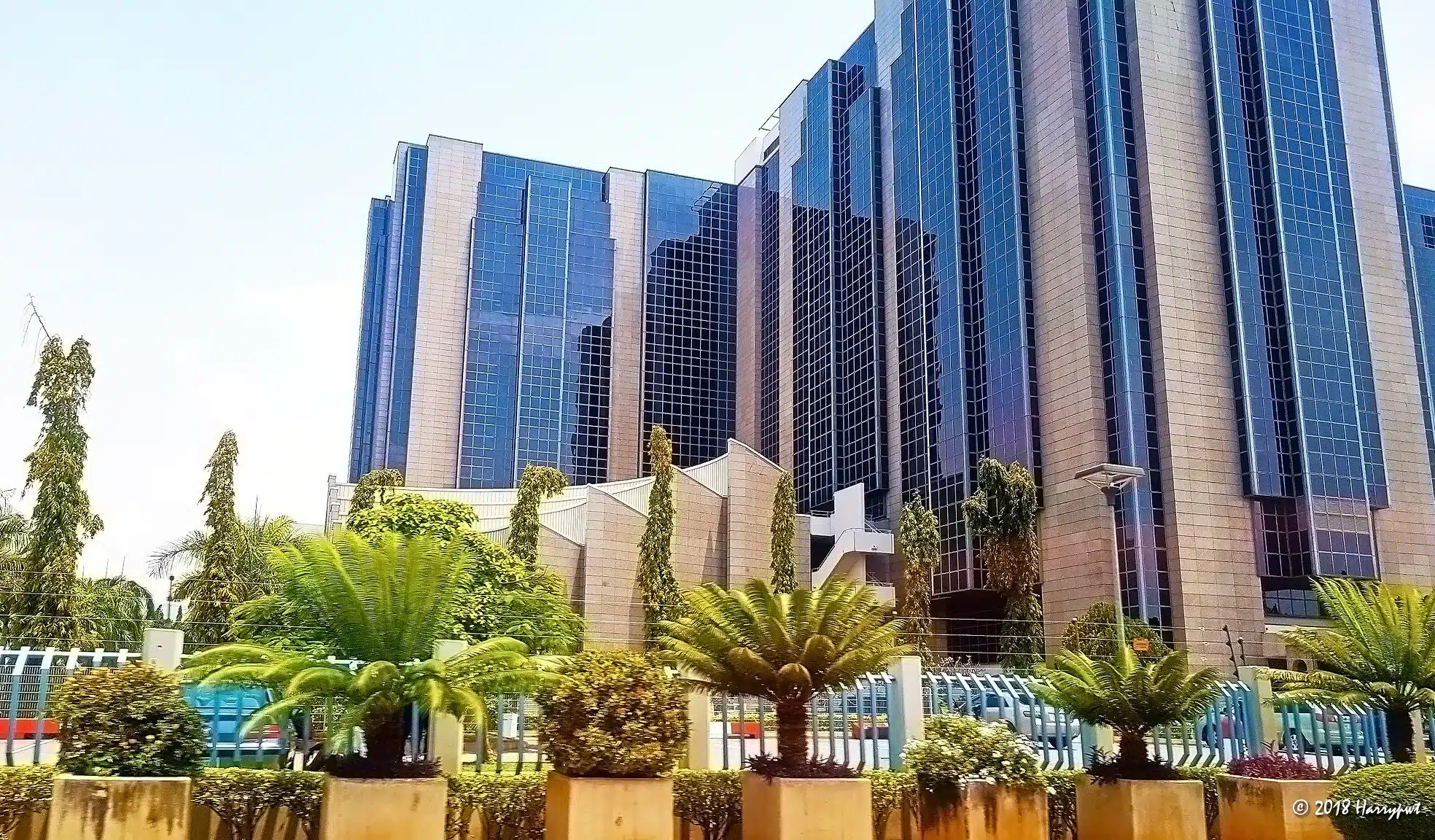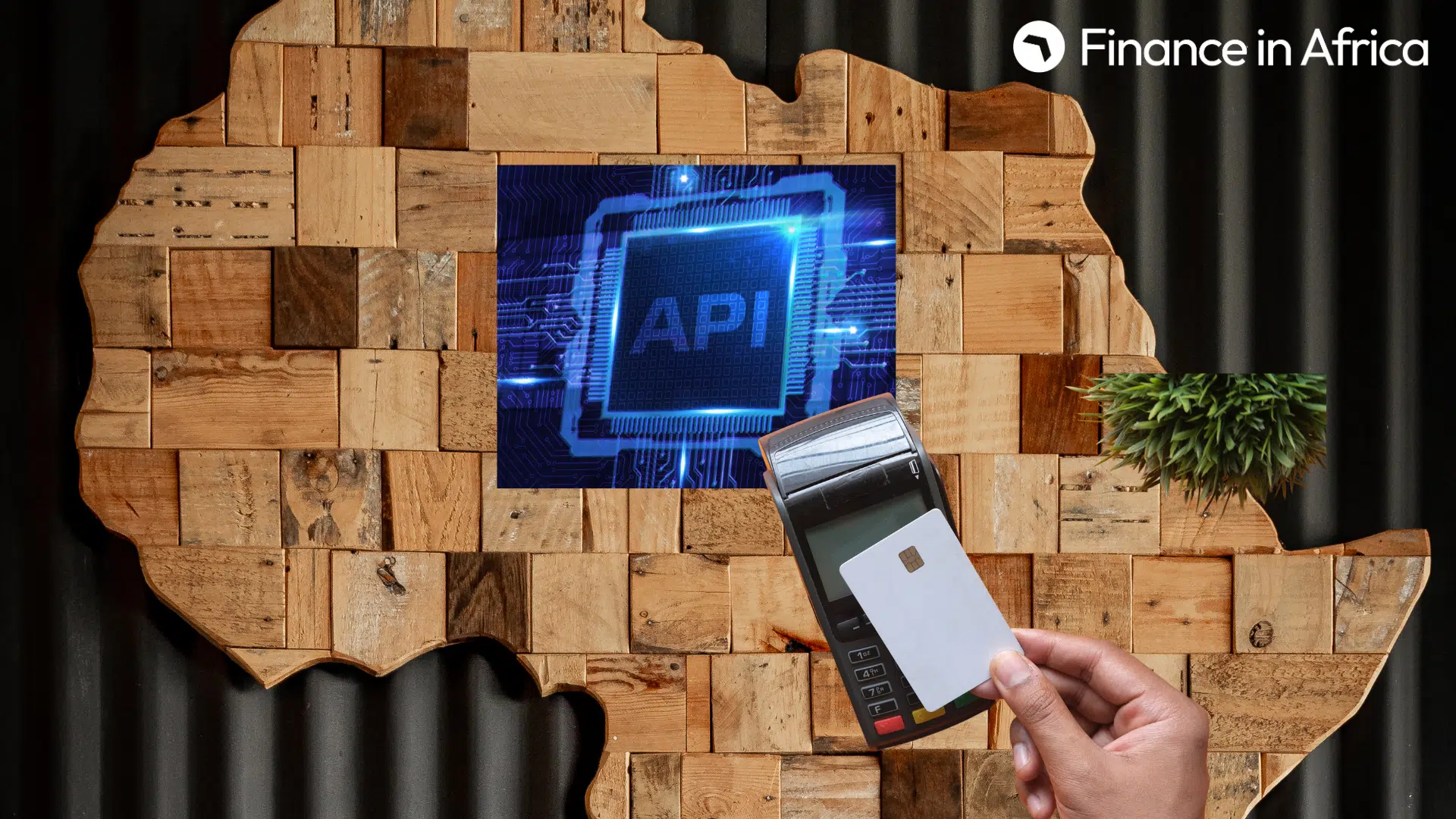Payments
Nigeria’s airport operator eyes over $270m as cashless policy looms
Author
-
Paul Chinedu is a financial writer and business analyst passionate about the intersection of the global economy and Africa. He examines how global trends impact African nations, providing insights that make complex economic issues accessible to all. Through his work.
Paul aims to foster awareness and dialogue about the challenges and opportunities shaping Africa’s future.
Author
-
Paul Chinedu is a financial writer and business analyst passionate about the intersection of the global economy and Africa. He examines how global trends impact African nations, providing insights that make complex economic issues accessible to all. Through his work.
Paul aims to foster awareness and dialogue about the challenges and opportunities shaping Africa’s future.
Nigeria’s fintech regime split between speed and stability — capital is feeling the strain
Author
-
Pelumi is a freelance writer with over five years of experience spanning content, creative, and academic writing. His work cuts across lifestyle, cryptocurrency, self-improvement, and technical documentation, and he has published academic papers that reflect his blend of curiosity and research. He currently collaborates with Finance in Africa, covering stories on the continent’s financial landscape. Connect with him on LinkedIn and explore his portfolio on Muck Rack.
Author
-
Pelumi is a freelance writer with over five years of experience spanning content, creative, and academic writing. His work cuts across lifestyle, cryptocurrency, self-improvement, and technical documentation, and he has published academic papers that reflect his blend of curiosity and research. He currently collaborates with Finance in Africa, covering stories on the continent’s financial landscape. Connect with him on LinkedIn and explore his portfolio on Muck Rack.
This EU decision blocked over $40 billion in capital across six African economies
Author
-
Majesty is a law graduate, tax enthusiast, and creative writer.
She co-founded the Tax Club at the University of Port Harcourt and served as its pioneer Vice President, creating a platform for students to engage with real-world tax issues. Let’s catch up here.
Author
-
Majesty is a law graduate, tax enthusiast, and creative writer.
She co-founded the Tax Club at the University of Port Harcourt and served as its pioneer Vice President, creating a platform for students to engage with real-world tax issues. Let’s catch up here.
Kenya opens equity trading to retail investors via M-Pesa
Author
-
I’m building Finance in Africa, a platform making financial information on banking, insurance, capital markets, and fintech across the continent more accessible and actionable. My work sits at the intersection of journalism, finance, technology and storytelling—with a focus on driving industry insight and professional relevance.
Previously, I was Brand Storyteller at Moniepoint, where I led thought leadership and business storytelling that shaped investor conversations and unlocked partnerships. I also served as Managing Editor at Techpoint Africa, where I directed coverage of Africa’s fintech and innovation economy. I’ve developed industry reports, interviewed global tech and finance leaders, and co-produced events and podcasts that reached hundreds of thousands.
Let’s connect on LinkedIn or Twitter (sorry X), or send tips to emmanuel@financeinafrica.com.
Author
-
I’m building Finance in Africa, a platform making financial information on banking, insurance, capital markets, and fintech across the continent more accessible and actionable. My work sits at the intersection of journalism, finance, technology and storytelling—with a focus on driving industry insight and professional relevance.
Previously, I was Brand Storyteller at Moniepoint, where I led thought leadership and business storytelling that shaped investor conversations and unlocked partnerships. I also served as Managing Editor at Techpoint Africa, where I directed coverage of Africa’s fintech and innovation economy. I’ve developed industry reports, interviewed global tech and finance leaders, and co-produced events and podcasts that reached hundreds of thousands.
Let’s connect on LinkedIn or Twitter (sorry X), or send tips to emmanuel@financeinafrica.com.
A guide to payment APIs in Africa: How developers are turning money into code
Author
-
Gbemi is a communications strategist focused on engineering and technical storytelling, translating complex systems into compelling, human-centered narratives. Catch up with her on Linkedin Gbemi Lolade Akanbi.
Author
-
Gbemi is a communications strategist focused on engineering and technical storytelling, translating complex systems into compelling, human-centered narratives. Catch up with her on Linkedin Gbemi Lolade Akanbi.
Nigeria’s APP fraud crisis forces liability rethink for user-authorised scams
Author
-
I’m building Finance in Africa, a platform making financial information on banking, insurance, capital markets, and fintech across the continent more accessible and actionable. My work sits at the intersection of journalism, finance, technology and storytelling—with a focus on driving industry insight and professional relevance.
Previously, I was Brand Storyteller at Moniepoint, where I led thought leadership and business storytelling that shaped investor conversations and unlocked partnerships. I also served as Managing Editor at Techpoint Africa, where I directed coverage of Africa’s fintech and innovation economy. I’ve developed industry reports, interviewed global tech and finance leaders, and co-produced events and podcasts that reached hundreds of thousands.
Let’s connect on LinkedIn or Twitter (sorry X), or send tips to emmanuel@financeinafrica.com.
Author
-
I’m building Finance in Africa, a platform making financial information on banking, insurance, capital markets, and fintech across the continent more accessible and actionable. My work sits at the intersection of journalism, finance, technology and storytelling—with a focus on driving industry insight and professional relevance.
Previously, I was Brand Storyteller at Moniepoint, where I led thought leadership and business storytelling that shaped investor conversations and unlocked partnerships. I also served as Managing Editor at Techpoint Africa, where I directed coverage of Africa’s fintech and innovation economy. I’ve developed industry reports, interviewed global tech and finance leaders, and co-produced events and podcasts that reached hundreds of thousands.
Let’s connect on LinkedIn or Twitter (sorry X), or send tips to emmanuel@financeinafrica.com.
Inside the machinery of financial fraud in Nigeria
Author
-
I’m building Finance in Africa, a platform making financial information on banking, insurance, capital markets, and fintech across the continent more accessible and actionable. My work sits at the intersection of journalism, finance, technology and storytelling—with a focus on driving industry insight and professional relevance.
Previously, I was Brand Storyteller at Moniepoint, where I led thought leadership and business storytelling that shaped investor conversations and unlocked partnerships. I also served as Managing Editor at Techpoint Africa, where I directed coverage of Africa’s fintech and innovation economy. I’ve developed industry reports, interviewed global tech and finance leaders, and co-produced events and podcasts that reached hundreds of thousands.
Let’s connect on LinkedIn or Twitter (sorry X), or send tips to emmanuel@financeinafrica.com.
Author
-
I’m building Finance in Africa, a platform making financial information on banking, insurance, capital markets, and fintech across the continent more accessible and actionable. My work sits at the intersection of journalism, finance, technology and storytelling—with a focus on driving industry insight and professional relevance.
Previously, I was Brand Storyteller at Moniepoint, where I led thought leadership and business storytelling that shaped investor conversations and unlocked partnerships. I also served as Managing Editor at Techpoint Africa, where I directed coverage of Africa’s fintech and innovation economy. I’ve developed industry reports, interviewed global tech and finance leaders, and co-produced events and podcasts that reached hundreds of thousands.
Let’s connect on LinkedIn or Twitter (sorry X), or send tips to emmanuel@financeinafrica.com.
Senegal’s mobile money tax risks reversing a decade of digital inclusion gains
Author
-
I’m building Finance in Africa, a platform making financial information on banking, insurance, capital markets, and fintech across the continent more accessible and actionable. My work sits at the intersection of journalism, finance, technology and storytelling—with a focus on driving industry insight and professional relevance.
Previously, I was Brand Storyteller at Moniepoint, where I led thought leadership and business storytelling that shaped investor conversations and unlocked partnerships. I also served as Managing Editor at Techpoint Africa, where I directed coverage of Africa’s fintech and innovation economy. I’ve developed industry reports, interviewed global tech and finance leaders, and co-produced events and podcasts that reached hundreds of thousands.
Let’s connect on LinkedIn or Twitter (sorry X), or send tips to emmanuel@financeinafrica.com.
Author
-
I’m building Finance in Africa, a platform making financial information on banking, insurance, capital markets, and fintech across the continent more accessible and actionable. My work sits at the intersection of journalism, finance, technology and storytelling—with a focus on driving industry insight and professional relevance.
Previously, I was Brand Storyteller at Moniepoint, where I led thought leadership and business storytelling that shaped investor conversations and unlocked partnerships. I also served as Managing Editor at Techpoint Africa, where I directed coverage of Africa’s fintech and innovation economy. I’ve developed industry reports, interviewed global tech and finance leaders, and co-produced events and podcasts that reached hundreds of thousands.
Let’s connect on LinkedIn or Twitter (sorry X), or send tips to emmanuel@financeinafrica.com.
Revolut names ex-Mastercard exec, Yacine Faqir, as Morocco CEO, deepens North Africa expansion
Author
-
I’m building Finance in Africa, a platform making financial information on banking, insurance, capital markets, and fintech across the continent more accessible and actionable. My work sits at the intersection of journalism, finance, technology and storytelling—with a focus on driving industry insight and professional relevance.
Previously, I was Brand Storyteller at Moniepoint, where I led thought leadership and business storytelling that shaped investor conversations and unlocked partnerships. I also served as Managing Editor at Techpoint Africa, where I directed coverage of Africa’s fintech and innovation economy. I’ve developed industry reports, interviewed global tech and finance leaders, and co-produced events and podcasts that reached hundreds of thousands.
Let’s connect on LinkedIn or Twitter (sorry X), or send tips to emmanuel@financeinafrica.com.
Author
-
I’m building Finance in Africa, a platform making financial information on banking, insurance, capital markets, and fintech across the continent more accessible and actionable. My work sits at the intersection of journalism, finance, technology and storytelling—with a focus on driving industry insight and professional relevance.
Previously, I was Brand Storyteller at Moniepoint, where I led thought leadership and business storytelling that shaped investor conversations and unlocked partnerships. I also served as Managing Editor at Techpoint Africa, where I directed coverage of Africa’s fintech and innovation economy. I’ve developed industry reports, interviewed global tech and finance leaders, and co-produced events and podcasts that reached hundreds of thousands.
Let’s connect on LinkedIn or Twitter (sorry X), or send tips to emmanuel@financeinafrica.com.
Fintech passport: Why a Ghana license now works in Rwanda and vice versa
Author
-
Pelumi is a freelance writer with over five years of experience spanning content, creative, and academic writing. His work cuts across lifestyle, cryptocurrency, self-improvement, and technical documentation, and he has published academic papers that reflect his blend of curiosity and research. He currently collaborates with Finance in Africa, covering stories on the continent’s financial landscape. Connect with him on LinkedIn and explore his portfolio on Muck Rack.
Author
-
Pelumi is a freelance writer with over five years of experience spanning content, creative, and academic writing. His work cuts across lifestyle, cryptocurrency, self-improvement, and technical documentation, and he has published academic papers that reflect his blend of curiosity and research. He currently collaborates with Finance in Africa, covering stories on the continent’s financial landscape. Connect with him on LinkedIn and explore his portfolio on Muck Rack.
The operator’s playbook to payment switches in Nigeria
Author
-
Gbemi is a communications strategist focused on engineering and technical storytelling, translating complex systems into compelling, human-centered narratives. Catch up with her on Linkedin Gbemi Lolade Akanbi.
Author
-
Gbemi is a communications strategist focused on engineering and technical storytelling, translating complex systems into compelling, human-centered narratives. Catch up with her on Linkedin Gbemi Lolade Akanbi.
Africa’s risk premium narrows as Nigeria, South Africa, exit FATF grey list
Author
-
I’m building Finance in Africa, a platform making financial information on banking, insurance, capital markets, and fintech across the continent more accessible and actionable. My work sits at the intersection of journalism, finance, technology and storytelling—with a focus on driving industry insight and professional relevance.
Previously, I was Brand Storyteller at Moniepoint, where I led thought leadership and business storytelling that shaped investor conversations and unlocked partnerships. I also served as Managing Editor at Techpoint Africa, where I directed coverage of Africa’s fintech and innovation economy. I’ve developed industry reports, interviewed global tech and finance leaders, and co-produced events and podcasts that reached hundreds of thousands.
Let’s connect on LinkedIn or Twitter (sorry X), or send tips to emmanuel@financeinafrica.com.
Author
-
I’m building Finance in Africa, a platform making financial information on banking, insurance, capital markets, and fintech across the continent more accessible and actionable. My work sits at the intersection of journalism, finance, technology and storytelling—with a focus on driving industry insight and professional relevance.
Previously, I was Brand Storyteller at Moniepoint, where I led thought leadership and business storytelling that shaped investor conversations and unlocked partnerships. I also served as Managing Editor at Techpoint Africa, where I directed coverage of Africa’s fintech and innovation economy. I’ve developed industry reports, interviewed global tech and finance leaders, and co-produced events and podcasts that reached hundreds of thousands.
Let’s connect on LinkedIn or Twitter (sorry X), or send tips to emmanuel@financeinafrica.com.
Nigeria’s informal economy is powering a payment system that’s growing without credit
Author
-
I’m building Finance in Africa, a platform making financial information on banking, insurance, capital markets, and fintech across the continent more accessible and actionable. My work sits at the intersection of journalism, finance, technology and storytelling—with a focus on driving industry insight and professional relevance.
Previously, I was Brand Storyteller at Moniepoint, where I led thought leadership and business storytelling that shaped investor conversations and unlocked partnerships. I also served as Managing Editor at Techpoint Africa, where I directed coverage of Africa’s fintech and innovation economy. I’ve developed industry reports, interviewed global tech and finance leaders, and co-produced events and podcasts that reached hundreds of thousands.
Let’s connect on LinkedIn or Twitter (sorry X), or send tips to emmanuel@financeinafrica.com.
Author
-
I’m building Finance in Africa, a platform making financial information on banking, insurance, capital markets, and fintech across the continent more accessible and actionable. My work sits at the intersection of journalism, finance, technology and storytelling—with a focus on driving industry insight and professional relevance.
Previously, I was Brand Storyteller at Moniepoint, where I led thought leadership and business storytelling that shaped investor conversations and unlocked partnerships. I also served as Managing Editor at Techpoint Africa, where I directed coverage of Africa’s fintech and innovation economy. I’ve developed industry reports, interviewed global tech and finance leaders, and co-produced events and podcasts that reached hundreds of thousands.
Let’s connect on LinkedIn or Twitter (sorry X), or send tips to emmanuel@financeinafrica.com.
Credibility cost: What Moniepoint’s $3.7m UK move reveals about African payment firms going global
Author
-
I’m building Finance in Africa, a platform making financial information on banking, insurance, capital markets, and fintech across the continent more accessible and actionable. My work sits at the intersection of journalism, finance, technology and storytelling—with a focus on driving industry insight and professional relevance.
Previously, I was Brand Storyteller at Moniepoint, where I led thought leadership and business storytelling that shaped investor conversations and unlocked partnerships. I also served as Managing Editor at Techpoint Africa, where I directed coverage of Africa’s fintech and innovation economy. I’ve developed industry reports, interviewed global tech and finance leaders, and co-produced events and podcasts that reached hundreds of thousands.
Let’s connect on LinkedIn or Twitter (sorry X), or send tips to emmanuel@financeinafrica.com.
Author
-
I’m building Finance in Africa, a platform making financial information on banking, insurance, capital markets, and fintech across the continent more accessible and actionable. My work sits at the intersection of journalism, finance, technology and storytelling—with a focus on driving industry insight and professional relevance.
Previously, I was Brand Storyteller at Moniepoint, where I led thought leadership and business storytelling that shaped investor conversations and unlocked partnerships. I also served as Managing Editor at Techpoint Africa, where I directed coverage of Africa’s fintech and innovation economy. I’ve developed industry reports, interviewed global tech and finance leaders, and co-produced events and podcasts that reached hundreds of thousands.
Let’s connect on LinkedIn or Twitter (sorry X), or send tips to emmanuel@financeinafrica.com.
Why African fintechs struggle to turn scale into revenue
Author
-
Pelumi is a freelance writer with over five years of experience spanning content, creative, and academic writing. His work cuts across lifestyle, cryptocurrency, self-improvement, and technical documentation, and he has published academic papers that reflect his blend of curiosity and research. He currently collaborates with Finance in Africa, covering stories on the continent’s financial landscape. Connect with him on LinkedIn and explore his portfolio on Muck Rack.
Author
-
Pelumi is a freelance writer with over five years of experience spanning content, creative, and academic writing. His work cuts across lifestyle, cryptocurrency, self-improvement, and technical documentation, and he has published academic papers that reflect his blend of curiosity and research. He currently collaborates with Finance in Africa, covering stories on the continent’s financial landscape. Connect with him on LinkedIn and explore his portfolio on Muck Rack.
OPINION: Africa’s $120 billion trade finance gap can’t be solved by banks alone
Author
-
This profile hosts opinion pieces and insights from distinguished leaders across Africa’s financial services ecosystem. From banking executives to insurance innovators, regulators, entrepreneurs, policymakers, and thought leaders, our guest contributors bring unique perspectives on the trends shaping capital markets, financial inclusion, technology, and the broader economy.
Through these contributions, Finance in Africa provides readers with diverse voices and expert analyses that enrich conversations on the continent’s evolving financial landscape.
Author
-
This profile hosts opinion pieces and insights from distinguished leaders across Africa’s financial services ecosystem. From banking executives to insurance innovators, regulators, entrepreneurs, policymakers, and thought leaders, our guest contributors bring unique perspectives on the trends shaping capital markets, financial inclusion, technology, and the broader economy.
Through these contributions, Finance in Africa provides readers with diverse voices and expert analyses that enrich conversations on the continent’s evolving financial landscape.
From selfie to settlement: How KYC powers digital finance in Africa
Author
-
Gbemi is a communications strategist focused on engineering and technical storytelling, translating complex systems into compelling, human-centered narratives. Catch up with her on Linkedin Gbemi Lolade Akanbi.
Author
-
Gbemi is a communications strategist focused on engineering and technical storytelling, translating complex systems into compelling, human-centered narratives. Catch up with her on Linkedin Gbemi Lolade Akanbi.
Open rails made Nigeria a payments leader, now cards must follow suit
Author
-
This profile hosts opinion pieces and insights from distinguished leaders across Africa’s financial services ecosystem. From banking executives to insurance innovators, regulators, entrepreneurs, policymakers, and thought leaders, our guest contributors bring unique perspectives on the trends shaping capital markets, financial inclusion, technology, and the broader economy.
Through these contributions, Finance in Africa provides readers with diverse voices and expert analyses that enrich conversations on the continent’s evolving financial landscape.
Author
-
This profile hosts opinion pieces and insights from distinguished leaders across Africa’s financial services ecosystem. From banking executives to insurance innovators, regulators, entrepreneurs, policymakers, and thought leaders, our guest contributors bring unique perspectives on the trends shaping capital markets, financial inclusion, technology, and the broader economy.
Through these contributions, Finance in Africa provides readers with diverse voices and expert analyses that enrich conversations on the continent’s evolving financial landscape.
Top stories
Leverage how money works in Africa
Get exclusive insights across banking, payments, and technology to gain a competitive advantage in Africa’s financial sector.

Leveraging the 75% anticipated revenue uplift from the cashless mandate, which digitises gates, parks, lounges, and fees, post-implementation IGR could reach $271.6 million (₦364 billion) annually, assuming seamless rollout.

Nigeria’s fintech ecosystem is one of Africa’s most vibrant, with its nucleus positioned in Lagos. According to the 2024 annual data released by the Nigeria Inter-Bank Settlement System (NIBSS)…

The European Union has lifted its high-risk designation for six African countries, after years in which the listing reshaped how capital moved in and out of their economies.

The NSE will integrate M-Pesa into share trading, a move that shortens settlement cycles and positions Kenya’s leading telco as a gateway to equity markets.

Telcos, fintechs and open-finance platforms are exposing APIs that let African developers move money, verify identity and offer credit with just a few lines of code.

The CBN’s new APP fraud draft rules shift liability across Nigeria’s payment system, introducing mandatory refunds, stricter timelines and Board-level oversight.

Nigeria’s fraud problem is deeper and more systemic than most admit. This analysis explores the loopholes, collusion networks and infrastructure gaps enabling financial crime.

The proposed levy may reshape Senegal’s fast-growing payments ecosystem, with experts warning of lower digital usage, weaker agent activity and a potential return to cash.

Revolut has named ex-Mastercard executive Yacine Faqir as CEO for Morocco, deepening its North Africa push and signalling a shift toward locally led digital banking expansion.

A new fintech passport between Ghana and Rwanda lets startups expand across both markets without relicensing — a real test of Africa’s push for borderless finance.

A practical guide for fintech founders, product leads, and payments operators navigating payment switches in Nigeria

Nigeria, South Africa, Mozambique and Burkina Faso have exited the FATF grey list, marking a breakthrough for Africa’s financial credibility and a reset in the continent’s risk premium.

Cash-based merchants are driving digital transfers, but there’s an opportunity to drive credit. The tell tale signs are there.

Moniepoint’s UK expansion lays bare the real cost of global ambition for African payment firms — from million-pound compliance spend to the regulatory discipline global scale deman

Africa is often celebrated as one of the world’s most dynamic fintech frontiers. Yet despite this remarkable dynamism, Africa remains a marginal player in the global fintech market.

Zest Payments has been fined $1.89k by Nigeria’s Central Bank for late filing of its 2023 accounts, a fresh setback for the two-year-old fintech, yet to break even despite hefty capital injections.

Africa’s trade finance shortfall won’t be fixed by banks alone — embedded finance and digital liquidity platforms hold the key to inclusive, cross-border trade growth.

Behind every selfie and ID check lies the hidden machinery powering Africa’s digital finance. Find out how KYC fuels trust, scale, and inclusion.

Nigeria’s open rails turned cashless payments into a trillion-naira success. Card exclusivity now risks undoing the gains, raising costs and stifling competition.
Leverage how money works in Africa
Get exclusive insights across banking, payments, and technology to gain a competitive advantage in Africa’s financial sector.


